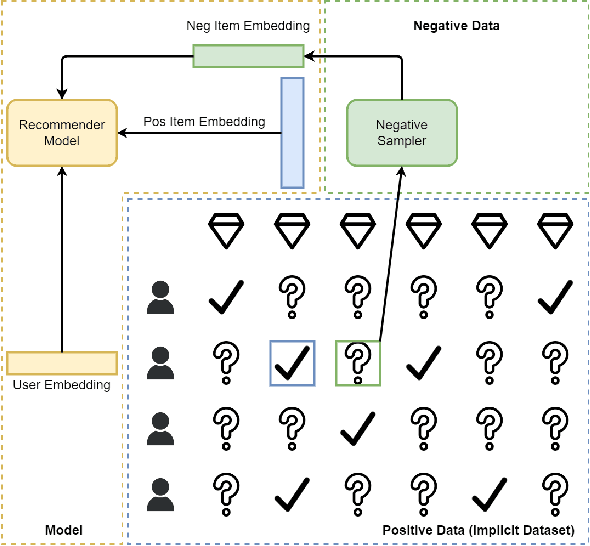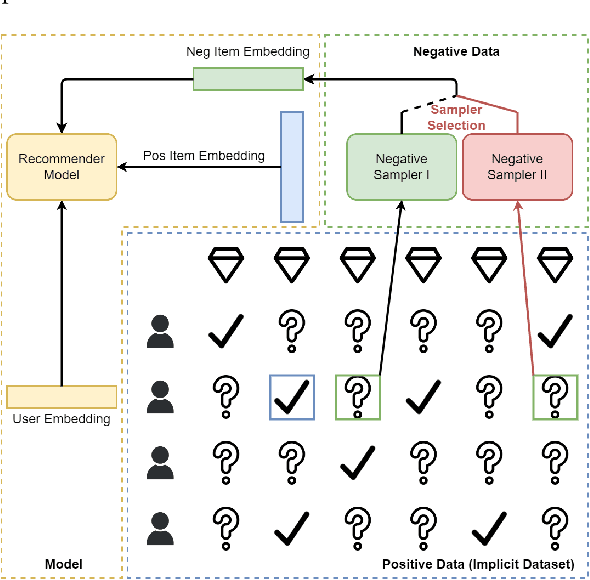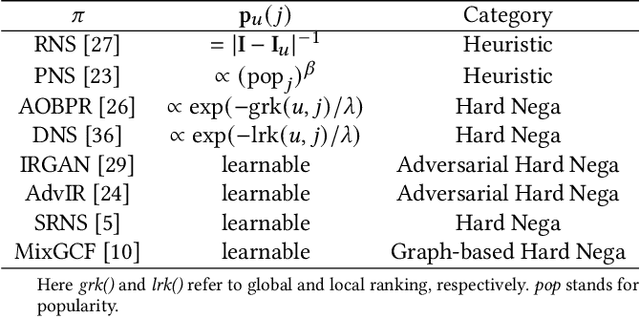Towards Automated Negative Sampling in Implicit Recommendation
Paper and Code
Nov 06, 2023



Negative sampling methods are vital in implicit recommendation models as they allow us to obtain negative instances from massive unlabeled data. Most existing approaches focus on sampling hard negative samples in various ways. These studies are orthogonal to the recommendation model and implicit datasets. However, such an idea contradicts the common belief in AutoML that the model and dataset should be matched. Empirical experiments suggest that the best-performing negative sampler depends on the implicit dataset and the specific recommendation model. Hence, we propose a hypothesis that the negative sampler should align with the capacity of the recommendation models as well as the statistics of the datasets to achieve optimal performance. A mismatch between these three would result in sub-optimal outcomes. An intuitive idea to address the mismatch problem is to exhaustively select the best-performing negative sampler given the model and dataset. However, such an approach is computationally expensive and time-consuming, leaving the problem unsolved. In this work, we propose the AutoSample framework that adaptively selects the best-performing negative sampler among candidates. Specifically, we propose a loss-to-instance approximation to transform the negative sampler search task into the learning task over a weighted sum, enabling end-to-end training of the model. We also designed an adaptive search algorithm to extensively and efficiently explore the search space. A specific initialization approach is also obtained to better utilize the obtained model parameters during the search stage, which is similar to curriculum learning and leads to better performance and less computation resource consumption. We evaluate the proposed framework on four benchmarks over three models. Extensive experiments demonstrate the effectiveness and efficiency of our proposed framework.
 Add to Chrome
Add to Chrome Add to Firefox
Add to Firefox Add to Edge
Add to Edge